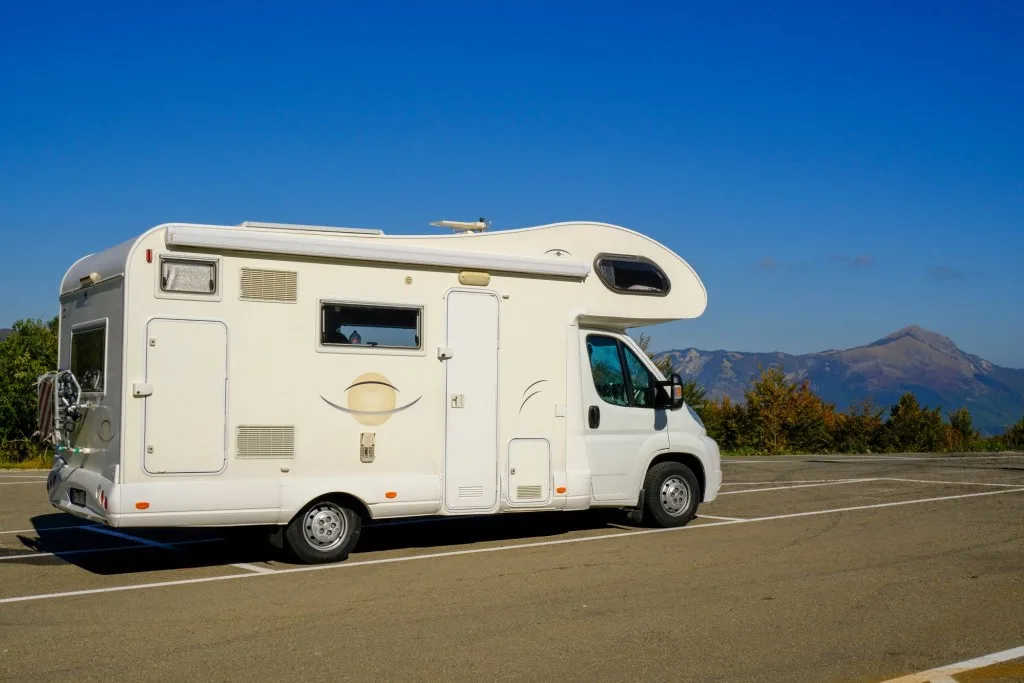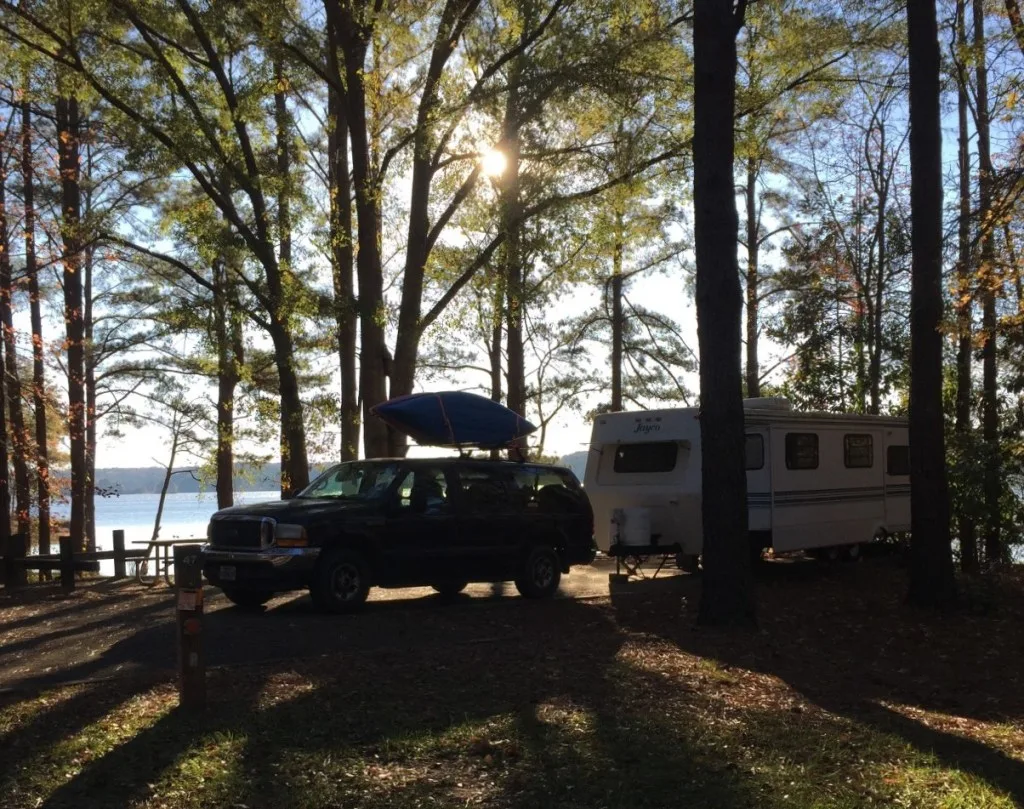Research by the RVIA revealed that 46 million Americans planned to travel in the next 12 months. In addition, 20% of respondents were more interested in RV travel than any other travel type, like cruise, rental, hotel, etc.
But with gas prices and questionable safety issues rising, will those numbers remain true? Has the RV industry hit its ceiling?
Let’s look at two significant issues troubling RVers this summer.
What Issues Are Troubling RVers This Summer?
This summer, people are raising questions about RV travel. However, the issues troubling RVers aren’t about health. They’re about gas and safety. Will gas prices continue to increase, or will we see some relief at the pump?
Will manufacturers keep increasing production or level off and focus on quality construction? For RVers, these are crucial issues. Whether you’re a weekender weighing the pros and cons of heading to a favorite spot or a full-time traveler considering remaining stationary for a few months, gas and safety have given RVers reason to pause.
How Will Gas Prices Affect the RV Industry?
According to Thor Industries, the most expansive manufacturer of RVs in the world, gas prices may encourage travelers to camp this summer. A recent survey shows that 69% of interviewees said that the rising fuel cost increased their likelihood to travel in an RV or had no impact on their travel plans. In addition, this same survey shows that 32% said that they’re more likely to purchase an RV within the next five years.
Why might this be true? Perhaps the affordable cost of campground fees versus hotel stays or VRBO or Airbnb rentals plays a factor in the decision for travelers to still travel by RV. Plus, the amenities that many campgrounds provide mean families don’t have to leave the campground or pay for attractions. They can spend the day at the pool, play a game of mini-golf, or hike a trail for free.
However, the survey didn’t have a high number of people. Plus, an RV empire that wants travelers to continue buying RVs is the one that conducted the study.
So this data could be skewed. Many campers will choose to stay home and travel less often. Some campers will choose to stay closer to home rather than take a cross-country trip to save money on fuel.
Pro Tip: Use these tips on How To Easily Spend Less Money on Gas to save at the pump on your next road trip.

What Is the Average Gas Mileage for an RV?
Gas mileage varies among RV types. A Class A motorhome has the worst gas mileage, averaging 6-12 MPG. Class C motorhomes are in the middle with an average of 10-18 MPG. Finally, Class B vans have the best fuel efficiency, averaging between 16-25 MPG. Typically, trucks that tow a travel trailer or fifth wheel will get 8-10 MPG.
The variation in fuel efficiency relates to the difference in size and weight. Class As are usually the longest and heaviest units, which makes them the least fuel-efficient. Their engines must work extra hard, regardless of whether they use gas or diesel fuel. Diesel engines are usually better and average a few more miles per gallon.
Because Class B vans are the smallest and lightest, their fuel efficiency is similar to that of a cargo van. On average, a Class B is around 18 feet and weighs 6,000-10,000 pounds. On the other hand, Class A motorhomes can be over 40 feet long and weigh up to 30,000 pounds.
How Much Does It Cost to Fill an RV With Gas?
Just like RVs vary in fuel efficiency, they also vary in fuel capacity. Class A motorhomes have the most spacious tanks and can hold up to 100 gallons of fuel in some models. At $5.00 per gallon, that’s $500 per fill-up.
The smaller Class C motorhomes hold anywhere from 40-60 gallons of fuel. At $5.00 per gallon, that’s $200-300 per fill-up. Finally, the smallest units, the Class Bs, usually only hold 25 gallons at one time. That’s $125 every time owners take a trip to the pump.
However, over time, Class A owners won’t have to visit the pump as often as Class B owners. A Newmar can drive farther without filling up again than a Sprinter van. So even though the price at the fuel station is higher, the fill-up will get RVers farther down the road.

Why Are RVers Concerned About Their Safety?
There are a few reasons RVers are more concerned about safety. For one, RV manufacturers in the last couple of years have built RVs with parts they could find. The labor and parts shortage has affected production, so it may seem like some manufacturers have pieced their RVs together. Some RVers are concerned that newer RVs aren’t up to standard.
Another reason for safety concerns is the new drivers on the road. The RV industry has boomed over the last few years. New RV owners are hitting the road, perhaps towing rigs or driving motorhomes they’ve never used before.
It can be concerning if new RVers aren’t safely traveling or learning to operate a rig properly. Plus, many owners tow vehicles that don’t have the payload or towing capacity they need to haul a camper safely.
Finally, it’s essential to research campgrounds and dispersed camping locations before arriving. Read reviews. Check around the area. If you don’t feel safe, don’t stay there. Many campgrounds have security or gates to prevent outsiders from entering the park, but many don’t have any security measures. When boondocking in the middle of nowhere, there’s always a risk.
However, as long as you’ve researched and feel safe, there’s no reason not to enjoy those beautiful places.
Pro Tip: We uncovered the 5 RV Safety Concerns most RVers have when hitting the road.

Are RVs Unsafe?
RVs undergo inspections before reaching the dealership lot. After a sale, the dealership inspects the rig before the new owner drives it off the lot. Owners can also hire an independent RV inspector to thoroughly examine an RV and inform them of any serious issues. The dealership should fix any problems before you take ownership of a new rig.
However, RVs don’t go through the same inspections as standard vehicles. Automobiles undergo strict procedures, including crash testing, that RVs don’t experience.
Even motorhomes don’t have crash testing or must adhere to seat belt standards. There are risks to riding in the rear of a motorhome.
Will You Still See RVers on the Road This Summer?
Even with high gas prices and worries over RV quality, there will still be many RVers on the road this summer. Campgrounds will be full. National Parks will be full. If you want to take a camping trip, you should make reservations. But you will also see people staying closer to home.
East Coast travelers will probably remain on the East Coast. West Coast travelers will likely stay on the West Coast. There should still be RVers who venture cross-country and don’t change their plans, too.
Do you have an issues troubling you as an RVer? Tell us in the comments!
Discover the Best Free Camping Across the USA
To be honest with you, we hate paying for camping. There are so many free campsites in America (with complete privacy).
You should give it a try!
As a matter of fact, these free campsites are yours. Every time you pay federal taxes, you’re contributing to these lands.
Become a FREE CAMPING INSIDER and join the 100,000 campers that love to score the best site!
We’ll send you the 50 Best Free Campsites in the USA (one per state). Access the list by submitting your email below: